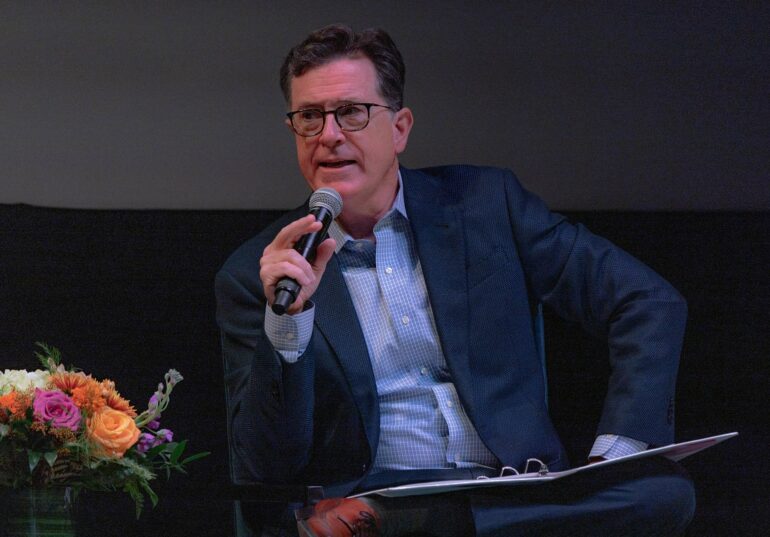In a move that stunned the entertainment industry and delighted some conservative circles, CBS has now reportedly announced this week it would cancel The Late Show with Stephen Colbert at the end of its eleventh season in May 2026.
The decision, which CBS executives insist is purely financial, immediately triggered speculation that the move may have been influenced by Colbert’s increasingly partisan commentary and criticism of political figures — particularly President Donald Trump.
Colbert, who learned of the cancellation just one day prior to the announcement, broke the news to his live audience on Thursday night. Met with boos from the crowd, he responded, “Yeah, I share your feelings,” and added, “I’m not being replaced. This is all just going away.”
Despite being the top-rated late-night host, averaging 2.5 million viewers per night, Colbert’s show has struggled to maintain profitability in a changing media landscape.
CBS executives said the cancellation had nothing to do with Colbert’s content, but pointed instead to budget constraints, advertising headwinds, and shifts in late-night viewing habits.
Still, for many observers on the right, the move signals a long-overdue correction to the overt political bias that has permeated network comedy.
Just days before the announcement, Colbert had unleashed sharp criticism of his own network and its parent company for reaching a $16 million defamation settlement with Donald Trump related to a 2018 60 Minutes segment.
Calling the payout a “big fat bribe,” Colbert sparked backlash within CBS and drew renewed scrutiny from network stakeholders as Paramount Global moves forward with a proposed $8.4 billion merger with Skydance Media.
The timing has fueled suspicions that Colbert’s political rants — and especially his attacks on Trump — may have finally worn thin, not just with executives, but with advertisers and investors navigating an increasingly polarized media environment.
Critics have long argued that Colbert’s brand of satire went from comedic to openly partisan, alienating half the country while providing cover for liberal elites.
Democrats have rushed to frame the cancellation as political retribution. Senators Elizabeth Warren and Adam Schiff took to social media demanding answers, with Warren implying the decision may have been a consequence of Colbert speaking out against the network’s settlement with Trump.
Schiff claimed the public “deserves better” than what he called “censorship.”
But Trump himself didn’t mince words, celebrating the announcement as a win. “I absolutely love that Colbert got fired. His talent was even less than his ratings,” Trump wrote on Truth Social.
CBS, for its part, praised Colbert as “irreplaceable” and credited him with elevating the show to the top of the late-night charts. Yet the network’s actions suggest otherwise.
As viewers shift to streaming and media companies scramble to cut costs, even high-performing shows are no longer immune to cancellation.
For many observers, Colbert’s departure marks the end of an era dominated by left-wing monologues disguised as entertainment — and possibly the beginning of a new chapter in late-night, one that might finally acknowledge that half of America is tired of being the punchline.
[READ MORE: Trump Cancels Funding to California’s Budget Busting ‘High-Speed’ Train]



